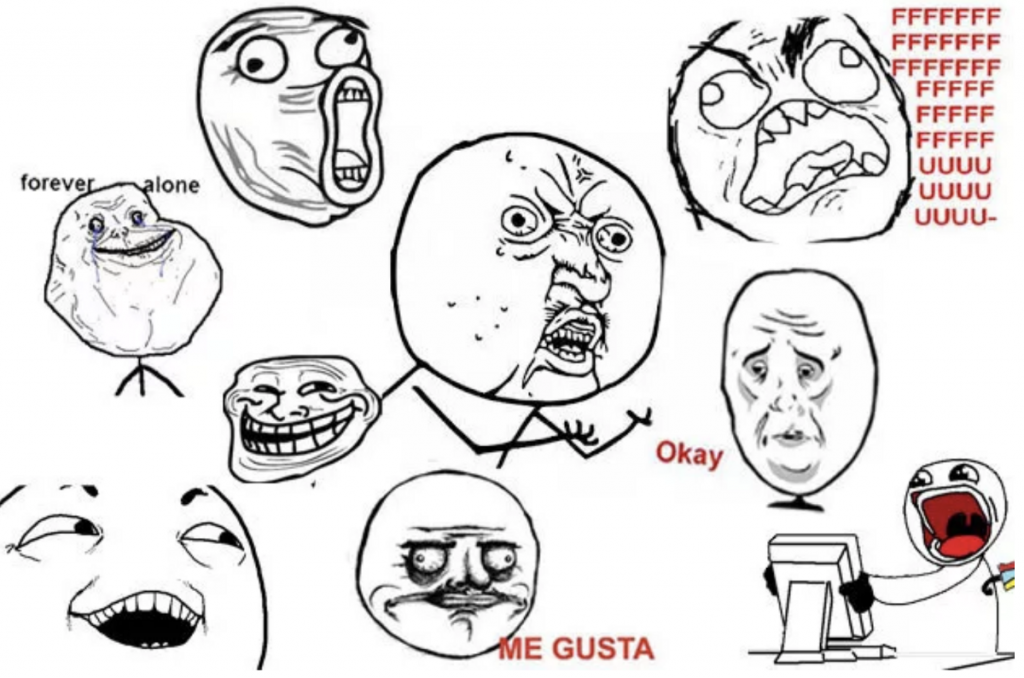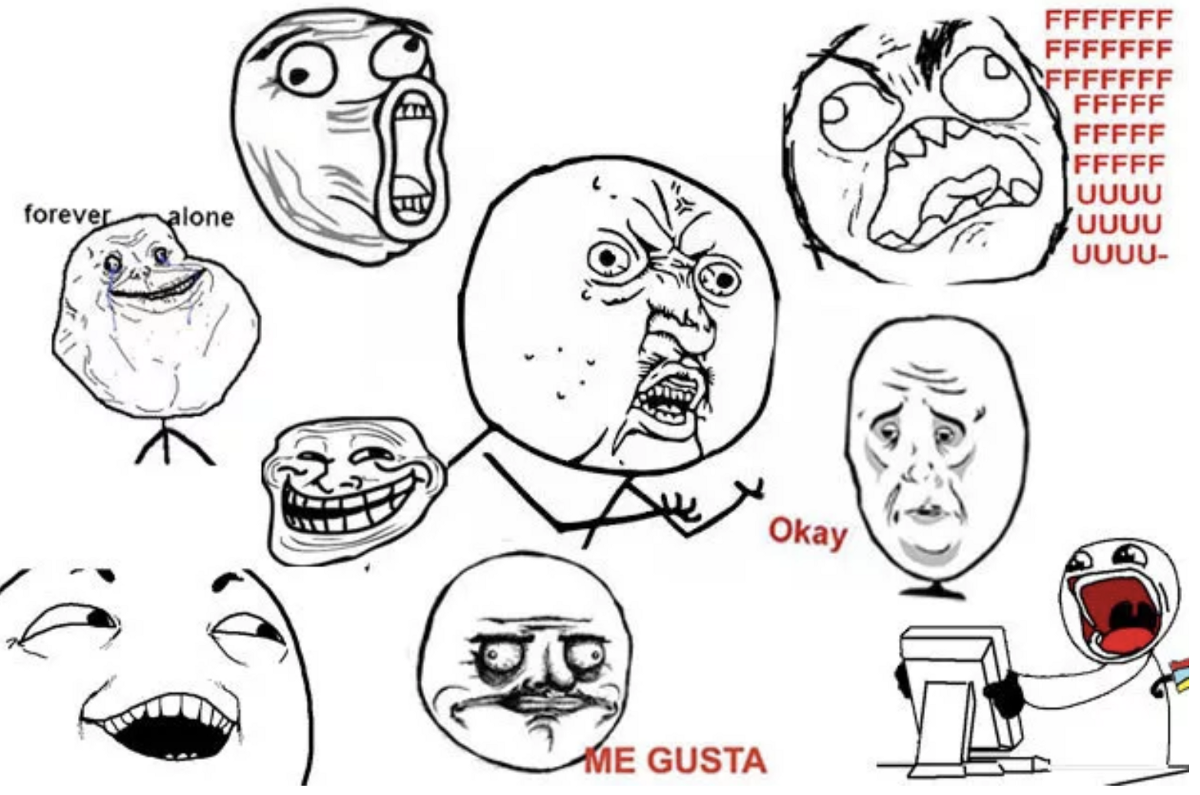
One of the several meanings of the term ‘meme’, is a ‘unit of cultural knowledge transmitted by imitation.’ Memes are usually created with the help of a meme generator and have emerged as an integral part of the millennial internet community. Read out this article to know more about Meme culture: A look into the new side.
A meme can be identified by the fact that it often consists of an image – mostly taken from pop cultures such as cartoons and viral videos – accompanied by a caption above the picture that references ‘relatable’ situations or even something related to relevant social, economic, and political news.
Memes spread through social media channels as well as via word of mouth, and the rate at which these go viral is much quicker than plain speech. In recent days, memes have found a loyal following resulting in them becoming widely available all over the internet.
A meme acts as a message that spreads from person to person and in most instances, as a highly targeted information source for people within the meme subculture. The content may include videos, photographs, or vines, but branded images too are now becoming mainstream in the meme culture.
Due to their widespread appeal and the portrayal of witty or sarcastic humor, there is a meme culture that is dominating the global internet space. Moving further, let’s delve deeper into what exactly is this newfound meme culture.
What Exactly is the Meme Culture?
The modern-day meme culture is dynamic and this dynamism can be attributed to the widespread circulation of memes.
Originally, memes were only featured on diversified internet resources that people would come across from time to time, find amusing, and share with someone else for their amusement.
But now, memes have emerged as a passive way of communication on social media channels and they are often quoted outside of the internet sphere, with people seeking ways to bring memes into conversations.
The idea of online communities across multiple sites on the internet is not new to Millennials and Generation Z.
These particular population bases are also mindful that memes are expanding beyond their own demographics and older generations too have hopped on this meme-spree.
Memes are now widely used by older people, as shown by their usage on social media sites such as Facebook which shows that people of all generations appreciate memes.
People are now creating memes for a diversified set of target audiences, and therefore memes can attract people of all ages.
Memes are generally well-received by people and a prime example of this is the rise of ‘meme-centric pages’ on social media, where people from all over the world share their creations that are relevant in their internet bubble.
These pages have amassed large followings and are very profitable, with some even acting as a main or secondary source of income for the page admins due to the revenue they earn from advertising and ads.
Memes are criticized at times, however, and there is a subset of memes that can be classified as “dark humor” that many audiences may consider derogatory.
Due to this, memes have also been a subject of some scholarly debates that discuss the viability and the long-term impact that memes will have on our society.
The recent Persian Gulf Crisis involving the USA and Iran is the latest example of the ‘derogatory’ use of memes.
When tensions between the US and Iran began to rise in the later parts of 2019, memes about a potential World War III were circulated like wildfire throughout the internet.
Social media appeared to have an infinite supply of images, photographs, and sketches depicting what it would be like to participate in a war.
One of the many ways to process intense feelings is to use satire to tackle more sensitive subjects. There were comedians before memes.
Stand-up humor and satirical chat shows made light of serious issues like bigotry and violence. Many memes have taken on this function and evolved into a kind of coping mechanism.
Why are Memes so Popular?
They are simple to make and typically free and this makes brands highly inclined towards them. Moreover, memes have the power to instill a current and trendy feel to a legacy brand seamlessly and help in delivering the intended message precisely.
Moreover, marketers who wish to modernize their brand and connect with their millennial and Gen Z followers are incorporating memes into their social media marketing strategies.
And as per the latest social media metrics, memes often go a long way in transforming a brand’s image from boring to chic. People enjoy them, and businesses like to see their fans happy.
There are additional advantages of memes for the followers as well. Memes are easy to consume at a time when people are constantly bombarded by facts and are often short of time.
A follower may not be interested in reading a blog, but they will take the time to enjoy a meme, which usually takes no more than a few seconds.
Memes are common for two reasons: they are relatable and easy to understand. The internet and social media have made information more accessible than ever before and finding content has become as simple as pushing a few buttons.
Many people enjoy memes as they can easily relate to the emotions that the meme is trying to instill. These have emerged as sorts of a coping strategy owing to the bond of memories that they can create between individuals.
They are also popular because they allow people to relate to one another about complicated or distinct emotions. However, there are some reservations about using satirical media to address sensitive topics.
Conclusion
Overall, the meme culture has become an integral part of internet culture, and while people do not necessarily agree with the content of this newfound media format, memes continue to amuse fans of all ages around the world.
Dangerous (or misdirected) memes will spread like wildfire, resulting in negative cultural shifts. We must wait to witness how social media and meme culture shapes our behavior and environment in either constructive or negative ways.
It could either lead to a more welcoming and informed society or it could lead to never-before-seen tragedy.









